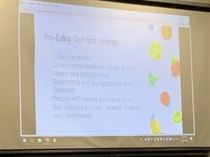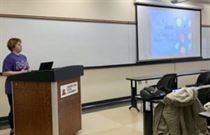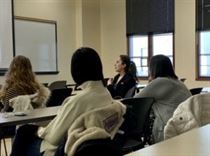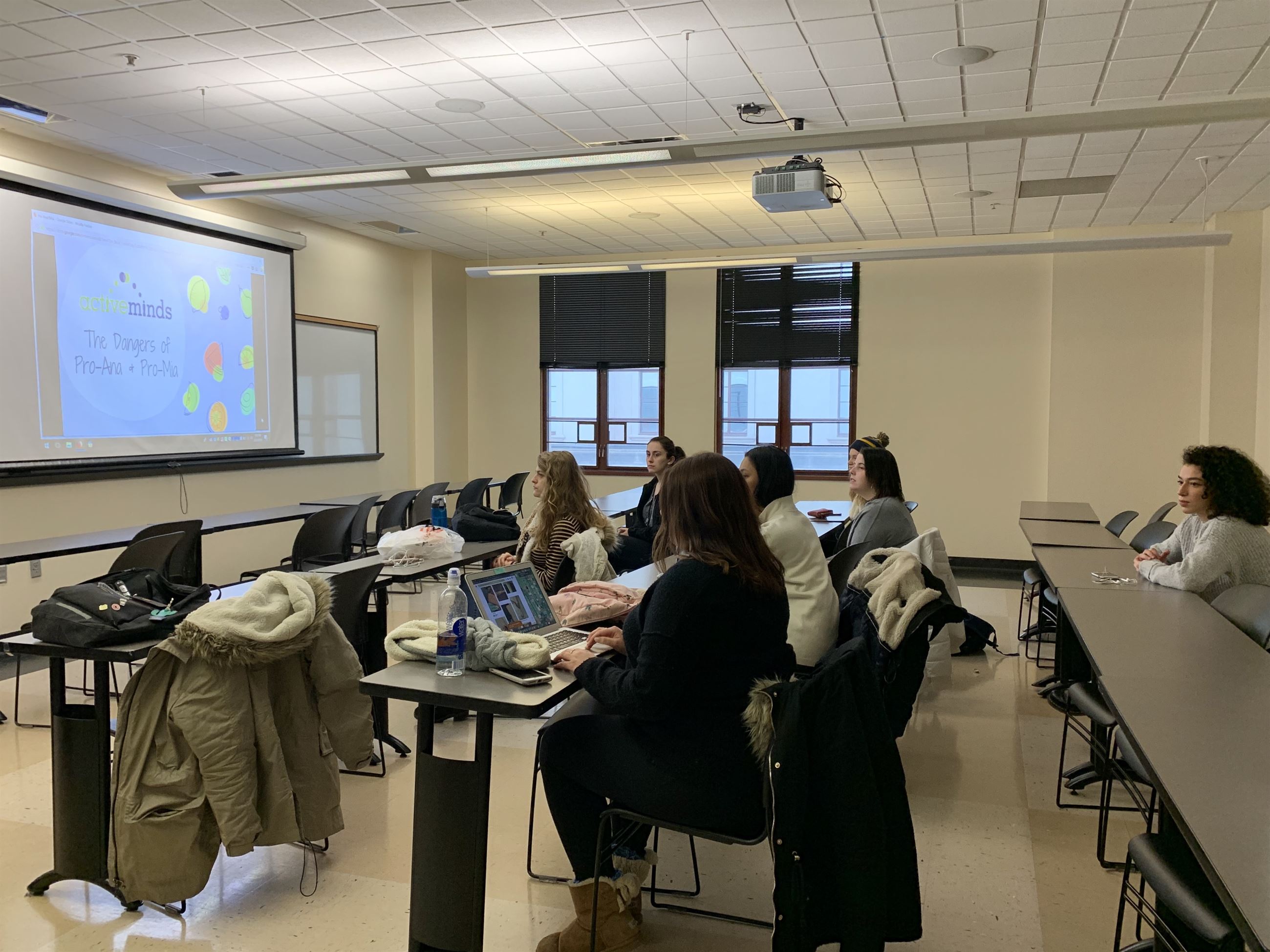In honor of National Eating Disorder Awareness Week, Active Minds participated by organizing presentations in hopes of bringing awareness to eating disorders and the ways they are promoted.
Active Minds is a student organization that wishes to increase awareness of mental health issues on the Montclair State University campus. They also work to inform students about mental health counseling and resources that are available.
On Wednesday afternoon, Active Minds held a presentation on “pro-ana” and “pro-mia” websites. “Pro-ana” stands for “pro- anorexia,” and “pro-mia” stands for “pro-bulimia.” They wanted to share with the students how these websites promote eating disorders as lifestyles rather than illnesses.

The event included a presentation about pro-eating disorders websites.
Genesis Obando | The Montclarion
Websites like myproanatips.com share tips on losing a lot of weight as quick as possible. It also shares obsessive rituals for doing so. This site claims that “pro-ana” is a diet and lifestyle. Some tips include limiting one’s calorie intake to 700 calories for the first three days of the “diet.”
Students also discussed their thoughts on the dangers of these websites and the effects these websites can have on young adults.
“It’s such a harsh reality. [The websites are] not something that’s really put into the public light,” said Active Minds member Victoria Cipparulo,a senior family science and human development major. “You don’t always know what it looks like and how deadly it is.”

Active Minds Vice President Kayla Drozdowski presents on “pro-ana” and “pro-mia” websites.
Genesis Obando | The Montclarion
Psychology and justice major Kayla Drozdowski is the vice president of Active Minds. Drozdowski says that most people know about anorexia and bulimia, but don’t know how they are commonly promoted; for example, through “pro-ana” and “pro-mia” websites.
Drozdowski also says that people with eating disorders can use the fake support groups on the websites and engage more into their behavior. She thinks students should be more aware of this and how dangerous it can be.
“My advice is to report them, so they get taken down,” Drozdowski said. “And if you see your friends, family or others engaging in these websites, make sure that they are aware of resources so they can get better.”
Students were shocked upon learning about these websites and how they seem to target young adults. They were also told how they can communicate with people struggling with eating disorders.

Active Minds member Emma Gentile discusses her thoughts on the websites.
Genesis Obando | The Montclarion
Emma Gentile, a freshman psychology major, thought this presentation was eye-opening.
“One thing I learned was the ways that you can talk to someone about [eating disorders],” Gentile said. “If you do notice someone struggling with an eating disorder, you can talk to them and tell them you want to help them.”



